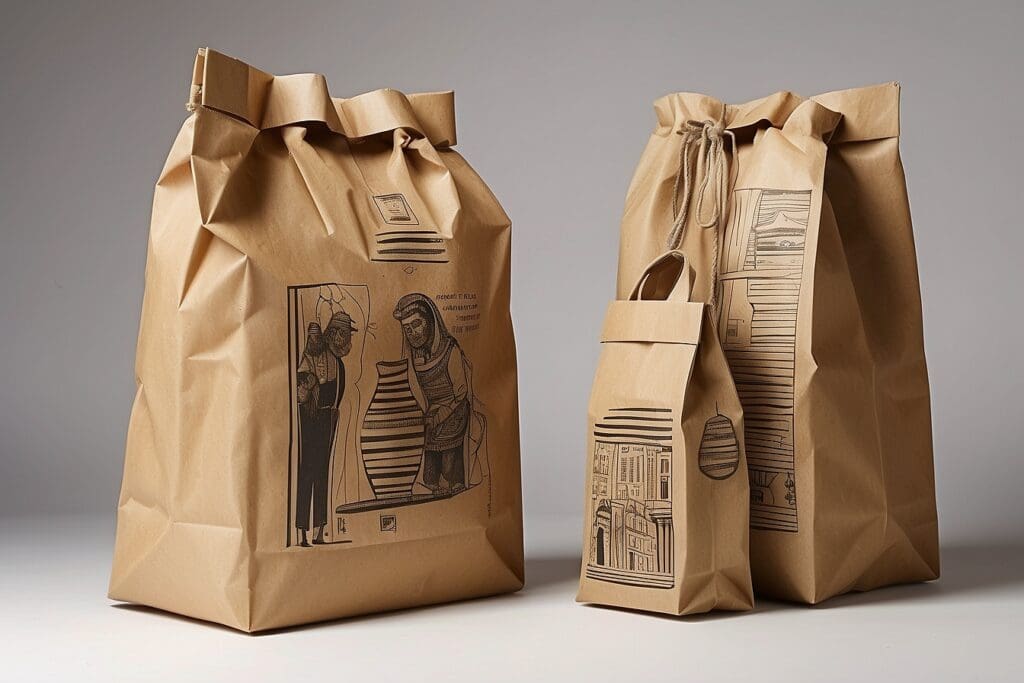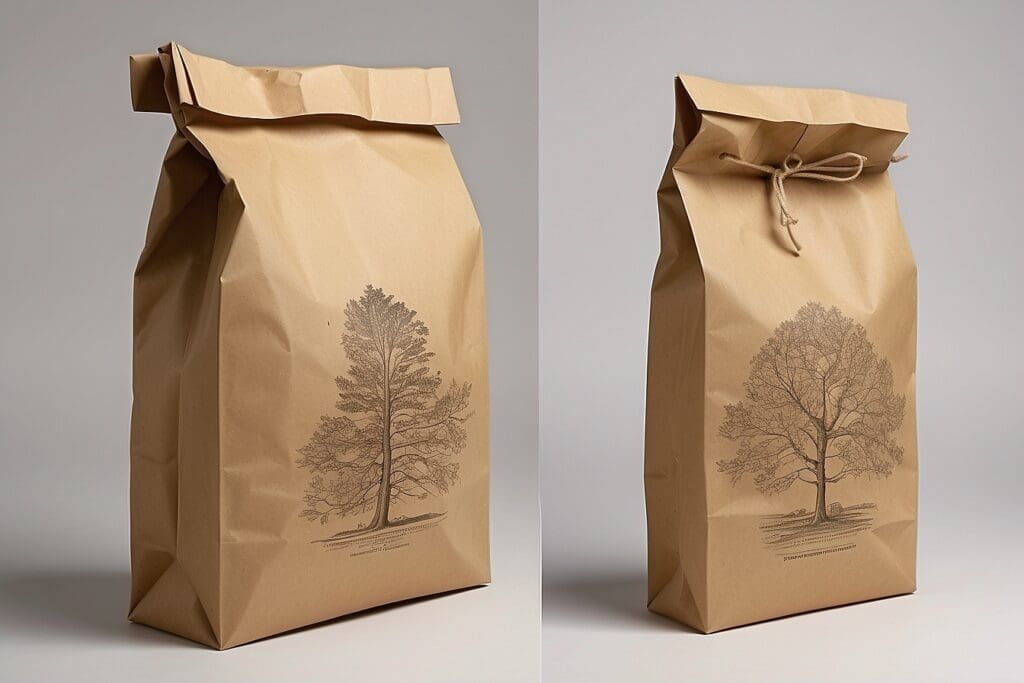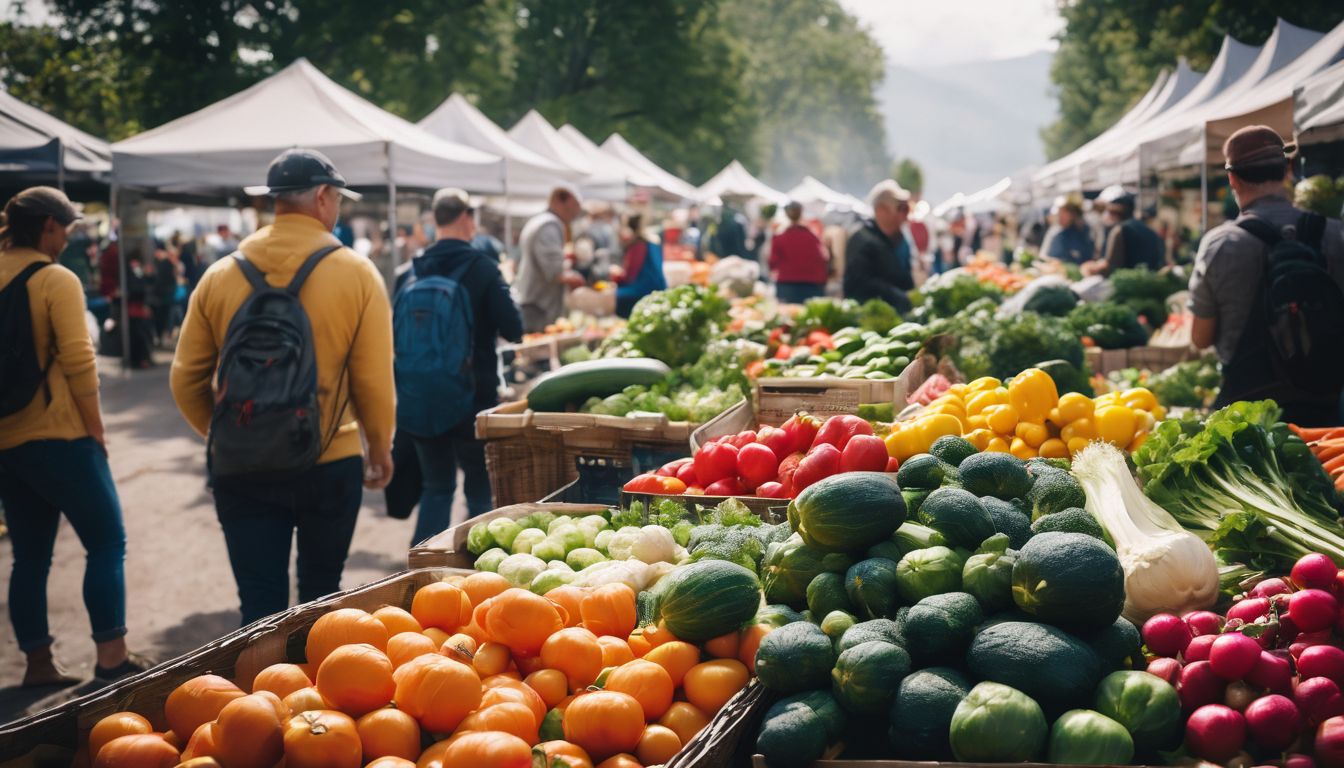Across the globe, plastic bag bans are being enacted, eliminating single use plastic bags in most grocery and merchandise stores. Most of the time the plastic bags are replaced with paper bags, often at a charge of 10 cents. However, this is by no means promoting the use of paper bags over plastic bags. Nonetheless, many people see plastic bag bans to be promoting the use of paper bags and has led many to believe that paper bags are good for the environment. The truth is, neither of these options are environmentally friendly, as instead people should be using their own reusable bags for all shopping trips. Ironically, manufacturers prefer plastic bags because they are much cheaper. So, why do we use paper bags and what is the effect of paper bag usage on the environment?
Paper Bag History
The paper bag was invented in 1852—over a century before plastic bags came into production—in the United States and was popularized because of a machine that made these paper bags easy to produce.2 Paper bags became even more popular after the invention of the flat bottom bag and the paper bag with handles, which came within 60 years of its initial invention. After the plastic bag came into circulation in the 1960s, it became a cheaper and lighter choice for markets.3 However, nation after nation, city after city, has decided to ban these bags to encourage the use of reusable shopping bags, allowing consumers to pay a small fee to use a paper bag instead.
Effects of Paper Bags on the Environment

The paper industry cannot say that it is guilt free when it comes to environmental degradation. Paper bags actually take four times the amount of energy and twenty times the amount of fresh water needed to make plastic bags. Moreover, a 2008 study found that we use an astounding 14 million trees annually to feed our paper bag industry. 4However, plastic bag production requires millions of barrels of oil annually, and oil is an extremely limited resource and a fossil fuel. Again, juxtapose this with the fact that the weight of paper bags causes the amount of fuel needed to transfer them to be higher than that required to transport plastic bags.5 In terms of pollution, studies show that producing paper emits 80 percent more acid rain .6
The paper versus plastic bag debate has been argued at great length with many different opinions regarding the bigger environmental hazard, as there are many aspects to consider. Paper is made from wood, a naturally grown resource which is also more likely to be recycled, even though the recycling process for paper bags is highly inefficient.7 Not only this, but paper bags actually take up seven times more landfill space than plastic bags.8 On the other side of the argument, only five percent of plastic bags are recycled9 and if they are, the amount of damage they cause to the recycling facilities makes most recycling services refuse them regardless. Furthermore, while people argue that paper bags are known to be biodegradable, if they end up in the landfill there is no difference in biodegradability between paper and plastic because the paper will not be exposed to air and the natural elements which aid in decomposition.10
As stated in many articles, biodiversity and the general health of the ocean is higher than the negative effects of paper bags.
Remember that reusing a product is much more productive and sustainable than spending more energy to recycle it or even composting it, so here are some great ways to reuse the plastic and paper bags that you have already have.
- – Paper bags are a great way to encourage the ripening of fruit by enclosing them in their own ethylene gas. 12
- – Use paper bags to separate your recyclables from your trash!
- – Paper bags can also be a great way to protect your books or the books of your kids. Just create a book cover by following the instructions here.
- – Plastic bags can be used to be trash bags. Although this will ultimately lead them to the landfill, the largest threat plastic imposes on our planet is its mobility and large chance of ending up in the ocean.
When it comes down to it, neither option—paper or plastic—is environmentally friendly. Single-use bags are contributing to a large portion of the landfill on our planet. If used, it is important to always recycle them because both paper and plastic can and should be recycled, or reused. However, reusable canvas bags are the best option when it comes to shopping and being green.





